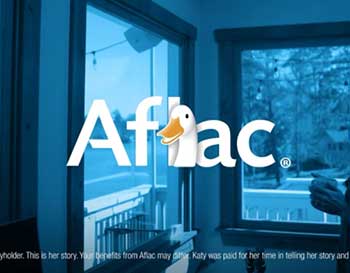When it comes to choosing supplemental insurance, Combined Insurance and Aflac are two big names that often come up. But what exactly do these companies offer, and how do they compare?
This comprehensive guide breaks down the key differences between Combined Insurance and Aflac to help you determine which provider may be the better fit for your needs.
A Brief Comparison Table
| Category | Combined Insurance | Aflac |
| Year Founded | 1922 | 1955 |
| Headquarters | Chicago, IL | Columbus, GA |
| Core Products | Accident, Critical Illness, Hospital Indemnity | Accident, Critical Illness, Hospital Indemnity, Dental, Vision, Life |
| Distribution Channel | Independent Agents & Company Employees | Mainly Independent Agents |
| Brand Awareness | Moderate | Very High |
| Premium Cost | Lower | Higher |
| Plan Flexibility | Less | More |
| Claims Process | Human Review | Digital/AI Review |
| Financial Strength | Good (owned by ACE) | Very Good |
| Customer Service | Average | Good |
Overview Of Combined Insurance

Founded in 1922, Combined Insurance is focused on providing supplemental insurance products to individuals, families, and businesses. Their product portfolio includes:
- Accident insurance – Helps cover unexpected medical expenses due to an injury.
- Critical illness insurance – Provides a lump sum payment if diagnosed with a covered critical illness.
- Hospital indemnity insurance – Pays a cash benefit for hospital-related expenses.
- Supplemental health insurance – Helps pay for deductibles, copays, and other gaps in primary medical insurance.
Combined Insurance utilizes both independent agents and company employees to market their products. They have a strong reputation and were acquired by the ACE Group in 2008.
Also Read: Comparison Between Aflac And Colonial Life.
Overview Of Aflac
Founded in 1955 and based in Columbus, GA, Aflac is arguably the most well-known supplemental insurer in the U.S. Their product lineup includes:

- Accident insurance
- Cancer/specified-disease insurance
- Critical care insurance
- Dental insurance
- Vision insurance
- Hospital indemnity insurance
- Disability income insurance
- Term life insurance
Like Combined, Aflac primarily uses independent agents to sell policies. The company is known for its popular televised Aflac duck commercials.
Core Products Comparison
Now let’s look at how the major medical supplemental insurance products from Combined Insurance and Aflac stack up:
Accident Insurance
- Combined: Accident treatment benefit, transportation benefit, lodging benefit, accident disability income rider.
- Aflac: Accident treatment benefit, hospital confinement benefit, accident disability benefit, initial accident disability benefit.
Both provide lump sum payouts for accidental injuries, but Aflac’s plan pays out for hospital stays while Combined’s focuses more on income replacement.
Critical Illness Insurance
- Combined: Covers heart attack, stroke, cancer, renal failure, coma, organ transplant. Pays lump sum benefit.
- Aflac: Covers heart attack, stroke, cancer, kidney failure, major organ transplant, coma and more. Pays lump sum benefit.
The critical illness plans are very similar from both providers. The covered conditions have a lot of overlap.
Hospital Indemnity Insurance
- Combined: Inpatient hospital confinement benefit, hospital emergency room benefit, ambulance service benefit.
- Aflac: Hospital confinement benefit, hospital emergency room benefit, ambulance benefit, surgery benefit, anesthesia benefit.
Both offer cash benefits for hospital-related expenses, with Aflac providing more ancillary benefits.
Based on the core product lineup, Combined Insurance and Aflac offer many comparable supplemental insurance offerings. However, Aflac provides some additional policies like dental, vision, and term life insurance.
Pros And Cons Of Combined Insurance
Pros
- Strong financial standing with ACE Group ownership
- Wide range of supplemental health products
- Competitive premiums and benefits
- Access to agents nationwide
Cons
- Website and tech lacking compared to competitors
- Limited brand awareness and marketing compared to Aflac
- Smaller selection of insurance products overall
Also watch the video!
Pros And Cons Of Aflac
Pros
- Very strong brand recognition
- Innovative, easy-to-understand plans
- Large network of agents across the U.S.
- Comprehensive selection of supplemental insurance
Cons
- More expensive premiums than some competitors
- High-pressure sales tactics used by some agents
- Lower prices may indicate smaller benefit payouts
- Most claims process digitally versus human review
And The Winner Is…
Overall, Aflac is the winner when it comes to brand awareness, variety of insurance offerings, and innovative plans. But Combined Insurance remains a solid choice with competitive pricing and benefits.
Combined tends to be more affordable, while Aflac has greater flexibility. Combined may be preferable for basic accident and hospital indemnity coverage, while Aflac shines for extensive critical illness and disability insurance.
Also Read: Is Country Financial Better Than State Farm?
Frequently Asked Questions (FAQ)
Top alternatives to Aflac include Combined Insurance, Globe Life, Mutual of Omaha, and Allstate. Combined Insurance offers similar supplemental health insurance products for lower premiums in many cases.
The top 3 competitors to Aflac are:
Combined Insurance
Globe Life
Mutual of Omaha
For many customers, Aflac can be worth getting due to their innovative plans, strong brand, and variety of supplemental insurance offerings. However, their premiums tend to be higher than competitors.
Yes, Combined Insurance is a good insurance company with competitive pricing, good financial strength, and decent customer service. They are a great choice for budget-friendly accident, critical illness, and hospital indemnity insurance.
Also Read: Differences Between Ally Bank And Bank Of America.
The Bottom Line
When choosing between Combined Insurance Vs. Aflac, consider your budget, specific coverage needs, and preferences towards brand reputation. Aflac is the higher profile name with more options, while Combined offers affordable basics. Evaluate your priorities and consult with insurance agents to select the right supplemental health insurer for you.
